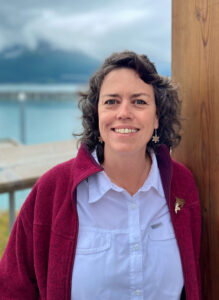
By Donna Schantz
Executive Director
I was reminded recently that when the Oil Pollution Act of 1990, or OPA 90, was voted on by Congress after the Exxon Valdez oil spill, it passed unanimously by both the House and the Senate. That kind of bipartisan support and unity is hard to image today, yet it is only when we set our differences aside and work together to find common ground that true and lasting change is made – for the good of all.
The Council’s mandates under OPA 90 include fostering long-term partnerships with government and industry. The Act specifically states, “…only when local citizens are involved in the process will the trust develop that is necessary to change the present system from confrontation to consensus.”
While the Council strives to build and maintain positive relationships with industry and regulators, the nature of our mission is to observe, ask questions, verify information, provide advice, and push for the highest level of transparency and safeguards. This has led to some uncomfortable conversations and recommendations over the years, and continues to this day. But, respectful disagreement is a cornerstone to addressing issues.
With that said, when information is withheld from citizens, trust is broken. If we look into issues and are told we don’t have all the facts, or that we have gotten something wrong, we are open to further examining and reevaluating our findings and conclusions based on the new information. However, we can’t correct any perceived inaccuracies unless we are provided what is needed. Improving the Council’s access to data and information necessary to fulfill our federally mandated role is the only way we can move forward together and work collaboratively with our industry and regulatory partners.
Another uncomfortable reality is the continued, and now escalating, federal budget cuts. The Council has raised concerns for years about reduced budgets, staffing, and resources at the agencies that oversee the Trans Alaska Pipeline System, including the Valdez Marine Terminal. Recent cuts to science and research budgets based on what is being characterized as an excessive and burdensome regulatory environment has concerned and alarmed many academics, researchers, and conservationists – as well as local citizens in our region. All of these concerns increase the risk of a major oil spill.
When we have comprehensive and consistent regulatory oversight, at both the federal and state level, along with citizen involvement, we create an environment that promotes development and ensures it is done safely. At a time when the U.S. is trying to unleash the full potential of American energy, we should be working to support a balanced approach for these agencies in their work, not cutting and decimating them.
All of this makes the work of the Council, and the need for all parties to work together on solutions, more important than ever. We need to be willing to have the uncomfortable conversations, respectfully and inclusively, and ensure there is adequate information to understand all impacts in the interest of safe transportation of oil through our region. We owe this to all those that suffered after the Exxon Valdez oil spill, and to those who would suffer if another similar disaster were to happen. We must be strong in the face of adversity. Only together – government, industry, and citizens – can we protect our resources, economies, communities, and environment, as was envisioned when OPA 90 was unanimously endorsed.